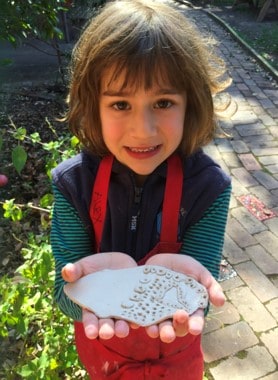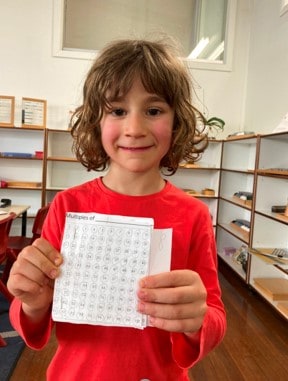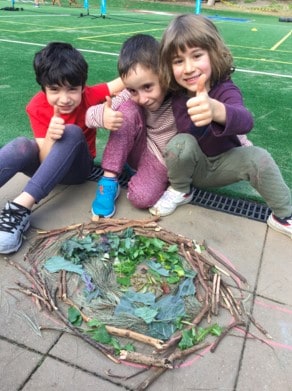In a mainstream school setting, which most of us come from, we are used to children moving up to a new class at the start of each new year. While children have specific moments of development, Montessori saw that each and every human has their own unique path, and their own time of ‘readiness’ to learn something new or progress to something more challenging.
This is why we plan a careful transition process for our students when they are moving from one program to another.
When moving up from one Montessori program to the next program, the children are guided in the next steps according to their stage of development. They enter a new environment with some familiar materials and lots of new materials. They are taught by teachers with a specific understanding of their stage of development. The teachers become their guides.
The teachers in the Children’s House, will be observing and will know when a child is ready to transition. The changes in development generally occur around age six and hence this is when children move up. However, age alone is not the guidepost. Some children will show signs of readiness as early as age 4 or as late as 7. It is all dependant on the child and their own natural trajectory. We follow the child.
All the Directors spend many hours of their training observing signs of readiness in order to understand what this actually means in terms of development. We work closely with the teachers in the 3-6 environment before a child moves up into the 6-9 environment. If a child is moved into a class too early or too late, this can affect their outcome and therefore it needs to be a process taken with care for each of our children. We involve the children in the process and their parents.
This term, we enjoyed welcoming two students into our class, who started the transition process in Term 2. They both joined in seamlessly, learning the culture of a very different environment full of movement, imagination, and possibilities
They have explored the “Great Stories” specifically given to the children when they move to this new stage, worked on Big Work which requires a new sense of stamina and focus, and found their own voice in our classroom.
We interviewed one of our new transition students – Felix, to gain his perspective of joining 6-9.
Felix said he likes being in the 6-9 class a lot! Especially because there is a bell that you ring to get the attention of the class so you don’t need to go around telling each person in the class the same thing – you can just ring it! He does find it challenging navigating so many lessons in one day. His favourite lesson was learning how to use the Large Bead Frame and learning how to use the science paper to write down and do science experiments. He also likes writing food recipes as part of his language work.


We are so proud of not only them, but all of the children in our class. As a teacher and I am sure as a parent, learning to find the balance of expectation is key. We seek to find ways that the child is challenging themselves, as well as letting go, holding back and letting them come to their own learning. Developing independence and progression in their own time, can be a tricky task, but they are maturing every day. We have no doubt they will find themselves and their very own meaningful place in the world as they continue to grow. It is a joy to be part of their journeys.




